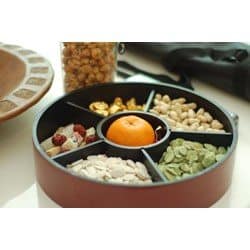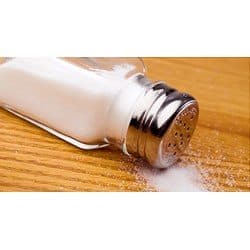www.ivaluelife.com
You are what you eat—and I mean that literally! Your body is a product of the food and beverages you consume. If you put junk into your body, you’re not going to feel as good, you’re not going to look as good, and you’re not going to be as healthy. Conversely, a healthy diet gives your body the nutrients it needs to stay in top condition. A healthy diet is not a “magic solution†that will heal every ailment—but your diet does have a huge impact on every aspect of your life.
The key, when it comes to eating healthy, is establishing the right habits. Good dietary habits make it possible for you to eat well on a regular basis. Today, I’m going to focus on three essential elements of your diet: Carbohydrates, Protein, and Fats. We’ll talk about the purpose of each element, as well as identify great sources of each.
Carbohydrates are designed to be consumed and broken down into simple sugars to provide us with energy.
Examples of good carbs include:
- Fruits
- Whole Grains
- Vegetables as well as peas & squash
- Potatoes & sweet potatoes
On the other hand, carbohydrates to avoid include:
- Corn (most are genetically modified)
- Refined or processed sugar
- White Bread
- Corn Starches
- White Flour
- Soy
Protein is broken down by our bodies into amino acids which are needed for organs, muscles,
and nerves. They help build, heal, and repair all tissues of the body
Good protein sources include:
- Organic eggs (from free-range chickens)
- Organic free-range chickens
- Organic grass-fed beef
- Organic free-range turkey
- Wild-caught fish
Bad sources include:
- Pork – pigs eat everything !
- Shellfish – bottom dwellers eat muck!
- Non-organic, caged, or grain-fed animals
- Omega 6 to Omega 3 fatty acid ratio imbalance which creates inflammation.
- Inflammation is the #1 cause of disease!
Fats are used by your body for cell membranes, to balance hormone production, to transport essential vitamins, to reduce hunger level, and to cause you to eat slower and less.
Good sources of fat include:
- Nuts such as almonds, brazil nuts, walnuts, and pine nuts
- Fish oils
- Olives, olive oil
- Coconut oil
- Pumpkin seeds, sesame seeds, sunflower seeds, and flax seeds
- Flax oil, safflower oil
- Avocadoes
Bad fats include:
- Milk & Cream (pasteurized and homogenized)
- Vegetable oils
- Shortening as preservative in most fatty foods
- Fried foods
- Trans fats
- Artificial flavors, preservatives, and most artificial sweeteners (toxic ingredients associated with fatty, fake foods)
Stay tuned for future blogs and articles which will explore this subject in greater depth. If you would like to learn more about providing your body with the right “fuels†to ensure that it remains healthy and performs well, visit us at http://www.ivaluelife.com/ today!




